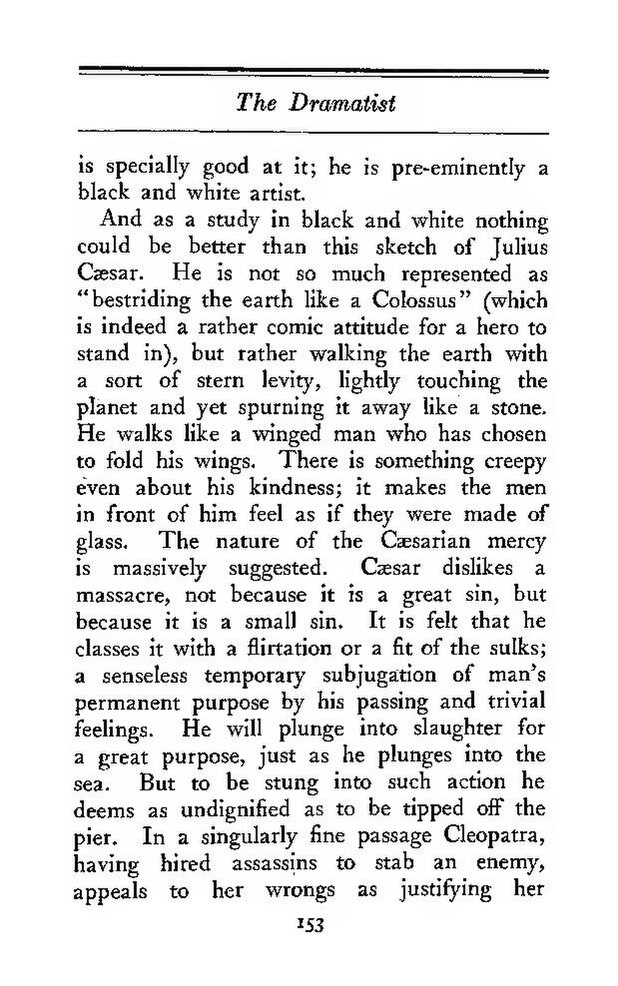is specially good at it; he is pre-eminently a black and white artist.
And as a study in black and white nothing could be better than this sketch of Julius Cæsar. He is not so much represented as "bestriding the earth like a Colossus" (which is indeed a rather comic attitude for a hero to stand in), but rather walking the earth with a sort of stern levity, lightly touching the planet and yet spurning it away like a stone. He walks like a winged man who has chosen to fold his wings. There is something creepy even about his kindness; it makes the men in front of him feel as if they were made of glass. The nature of the Cæsarian mercy is massively suggested. Cæsar dislikes a massacre, not because it is a great sin, but because it is a small sin. It is felt that he classes it with a flirtation or a fit of the sulks; a senseless temporary subjugation of man's permanent purpose by his passing and trivial feelings. He will plunge into slaughter for a great purpose, just as he plunges into the sea. But to be stung into such action he deems as undignified as to be tipped off the pier. In a singularly fine passage Cleopatra, having hired assassins to stab an enemy, appeals to her wrongs as justifying her
153
